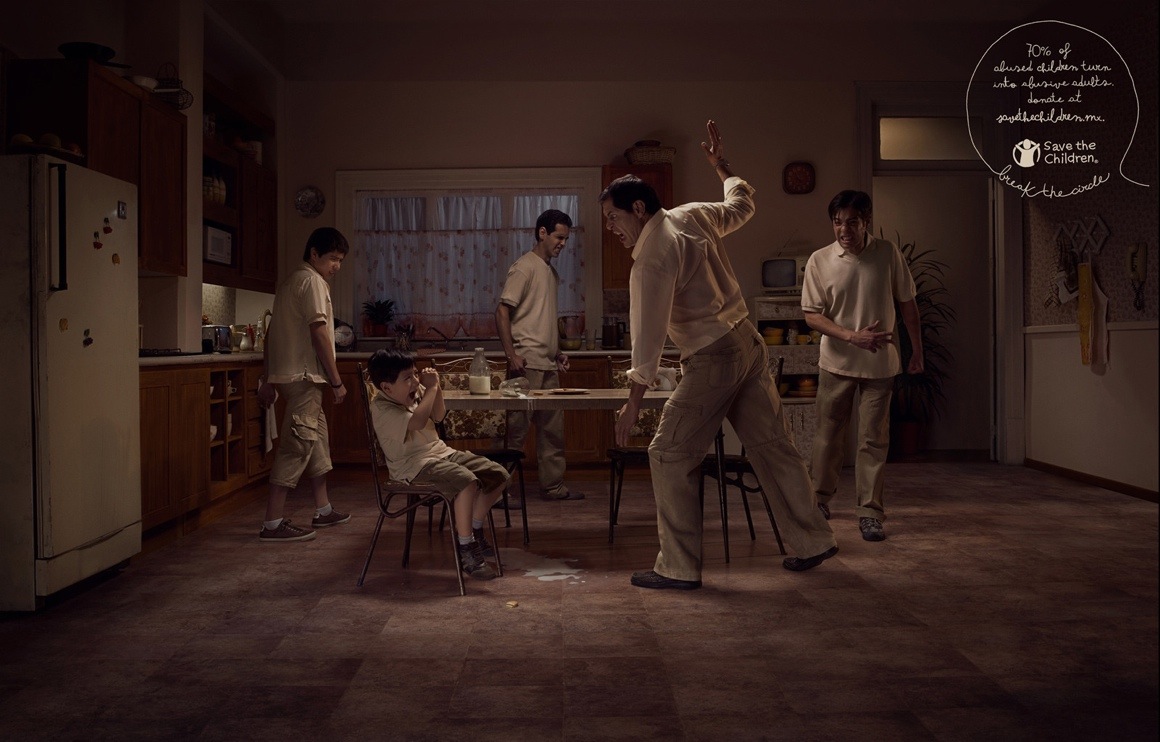We have the ability, right, and responsibility to choose how we respond in any situation.
How we respond is largely shaped by our childhood. When we are young, we are impressionable. We learn at a rapid pace. We study our parent(s) and teachers to learn how to behave. I recently heard it expressed that we never really grow up—we just learn how to behave in public.
Ideally, our childhood role models set a good example for us, and we learn how to be kind, considerate, and compassionate. Sadly, this is often not the case.
Consider the PSAs from SaveTheChildren.mx last year (US site). 70% of abused children grow up to be abusive parents. That’s a horrible and very difficult example to overcome. The scars and the pain run deep. It can shape your fundamental perception of the world: “This is normal”, “I deserve this”, “There’s nothing I can do”, “There is no escape”, “I can’t stop it”, “I can’t change anything”. None of those are true, but it’s easy to see how ideas like that can cripple our ability to choose our response, and the cycle repeats.
At Comicpalooza last week (May 24–26), Sir Patrick Stewart took a question from fan Heather Skyes: “Besides acting, what are you most proud of that you have done in your life?” His heartfelt answer describes his work with Refuge and Combat Stress in honor of his parents.
Two quotes from Sir Patrick. The first, 2:14 in:
The people who could do the most to improve the situation of so many women and children are in fact men. It’s in our hands to stop violence toward women.
5:45 in:
As a child, I heard in my home doctors and ambulance men say, “Mrs. Stewart, you must have done something to provoke him.” “Mrs. Stewart, it takes two to make an argument.” Wrong. Wrong. My mother did nothing to provoke that and even if she had, violence is never, ever a choice that a man should make.
Ever.
It is essential that we learn to choose our responses. Not only for ourselves, but for those around us. Wives. Husbands. Partners. Children. Friends. More people are looking to us for an example than we realize. Our actions have a greater impact than we believe. The consequences of our actions—good or bad—reach farther than we know.
Let’s say that 70% figure works both ways. Let’s say 70% of children who are raised in a warm, loving home environment grow up to provide that same warm, loving environment to their children. As horrible as the cycle of abuse is, the cycle of love is just as wonderful.
Either way you want to look at it—a legacy of abuse to avoid or a legacy of love to cultivate—don’t you think that’s worth fighting for? Worth a little bit of self-control and restraint? Learn to deal with your anger. Talk to a counselor or therapist. Find a good pastor.
Be an agent of change that transforms your family for generations.
Question: What change would make the biggest difference in your children’s life? What are you doing to make it happen? Share your thoughts in the comments, on Twitter, LinkedIn, or Facebook.

